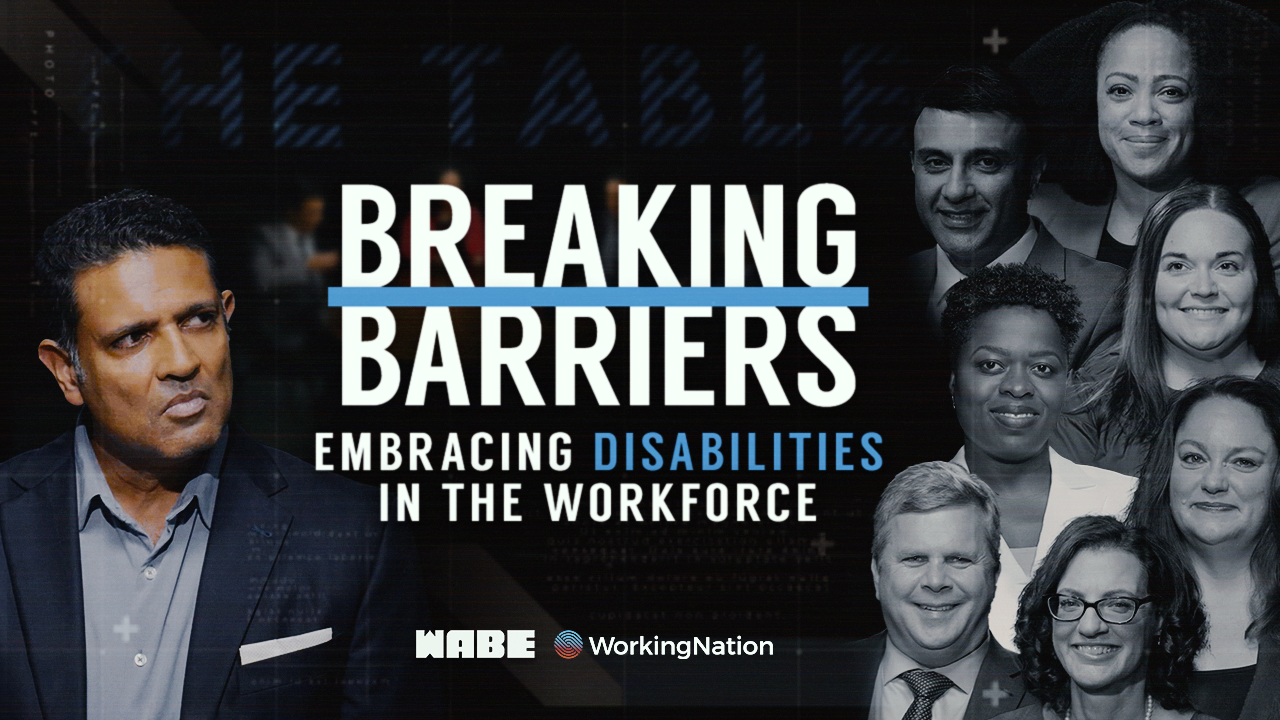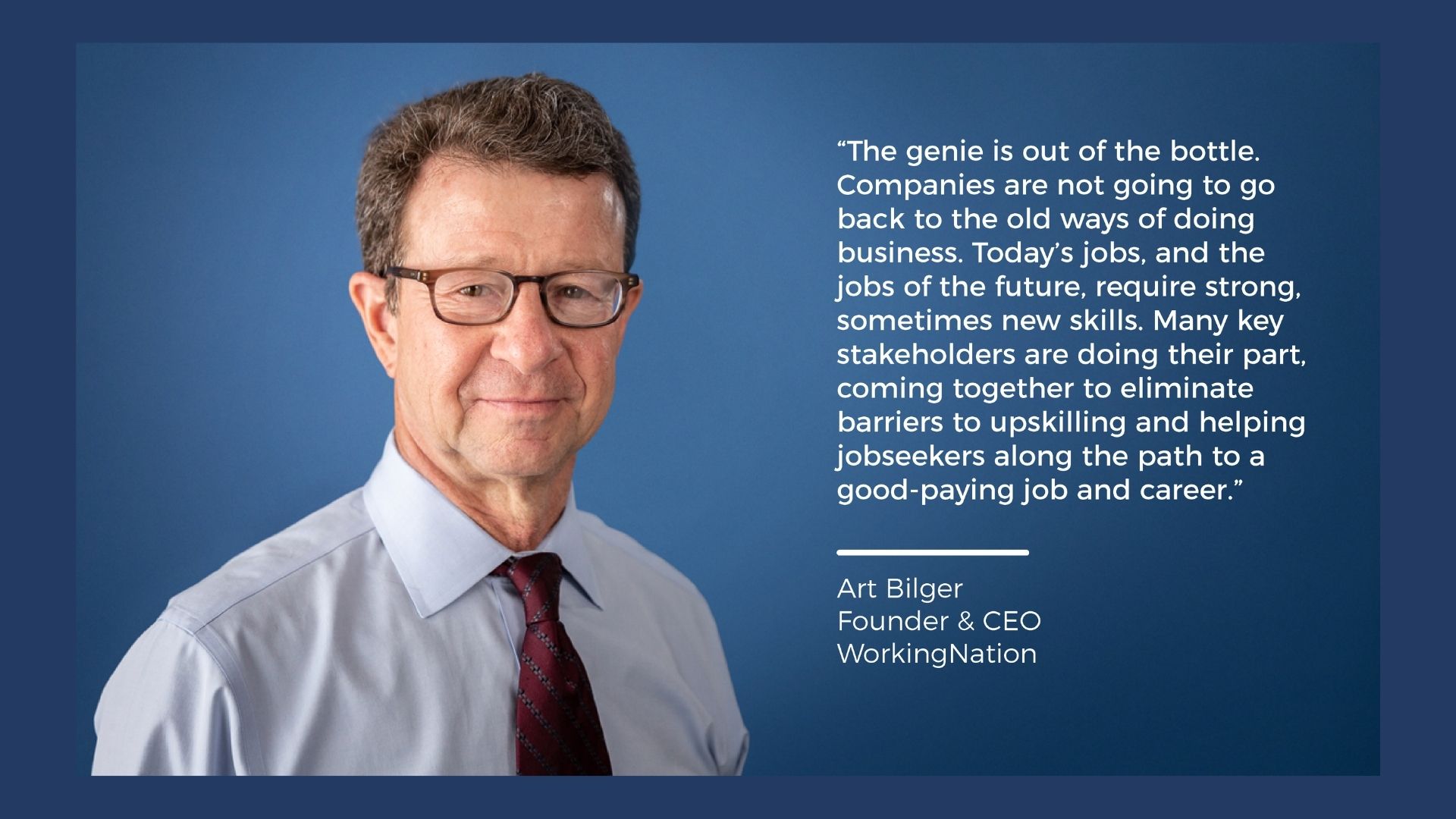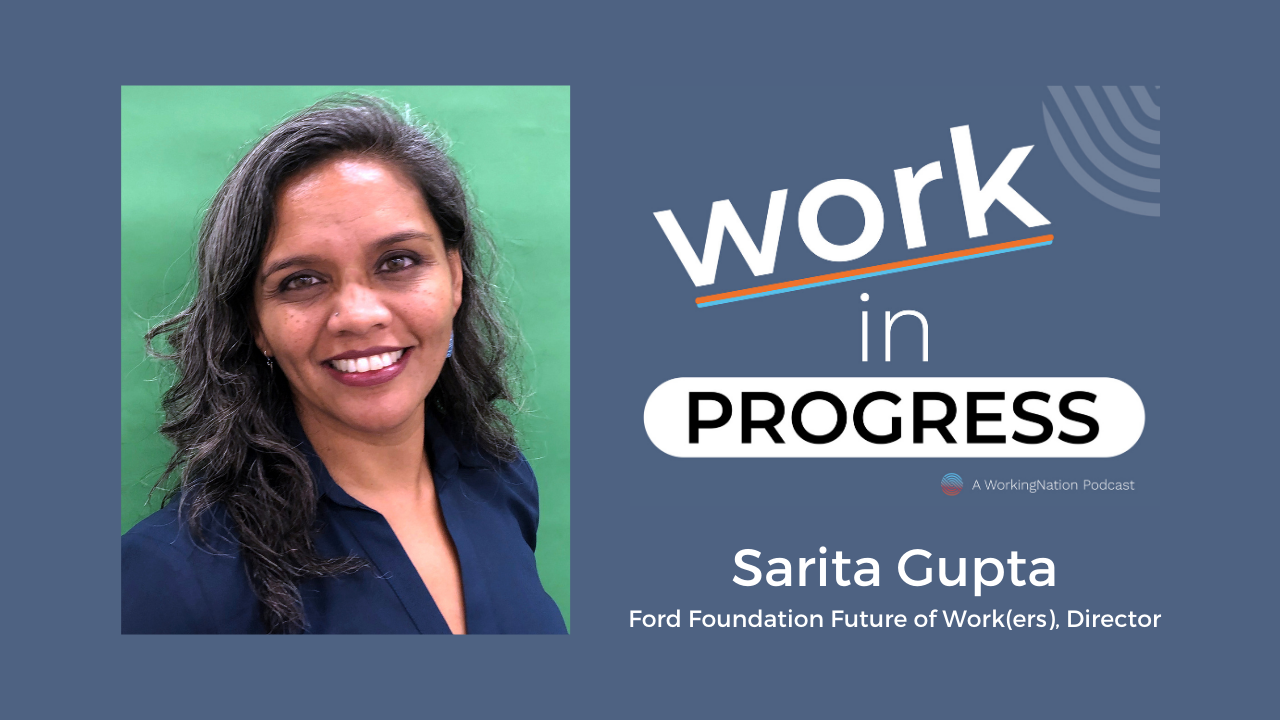Podcast: Play in new window | Download | Embed
Subscribe: Apple Podcasts | Google Podcasts | Spotify | Pandora | Youtube Music | RSS
Robots are taking your jobs! Maybe. Maybe not.
“The whole notion of jobs being destroyed by AI is pretty hot. It’s been around for quite a while. In fact, the Oxford University study suggested 47 percent of jobs are going to be wiped out by AI is over six years old. We don’t quite take that apocalyptic kind of dystopian view of things,” Benjamin Pring, director of Cognizant’s Center for the Future of Work, tells me in this week’s episode of Work in Progress.
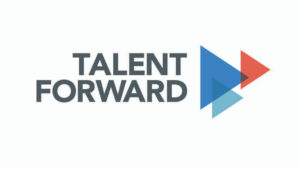
Pring and I recently met up at Talent Forward 2019, the national workforce conference held by the U.S. Chamber of Commerce Foundation in Washington each year.
The Center for the Future of Work does original research and analysis on work trends caused by evolving technology. I asked him whether or not he thinks robots, AI, and other new technologies will lead to wholesale destruction of the workforce in the next few years.
Pring says it’s true — new technologies developed over the decades have historically displaced jobs. But slowly. And it is also true — they have created many more jobs that didn’t exist before the new technologies were created.
He argues that when you look at workforce disruption you have to separate the notion of disappearing jobs from disappearing tasks.
“Ten to 12 percent of jobs will go away. Ten to 13 percent of new jobs will be created. But the vast bulk of jobs — 75 percent — will be the same, but they will be using this next-generation technology to do that work faster, more efficiently, more productively, more profitably, and, hopefully, more enjoyably.”

The discussion eventually turned to what happens to the older workers with skills that are no longer needed in the workforce? What happens to them as jobs become more dependent on AI and other new technologies?
Pring and I agree these are the toughest questions in the whole future of work debate. He has some very interesting thoughts on the subject and it is worth hearing them for yourself.
You can listen to this episode Work in Progress here on WorkingNation.com, or you can download the podcast (and subscribe to all the Work in Progress podcasts) wherever you get your podcasts.
We hope you enjoy the conversation.
In next week’s podcast, also from Talent Forward 2019, I speak with Gayatri Agnew, senior director for Walmart and part of the company’s Social Responsibility Team. She leads strategy and partnerships on economic mobility, specifically human capital, shared value, partnerships, and philanthropy.
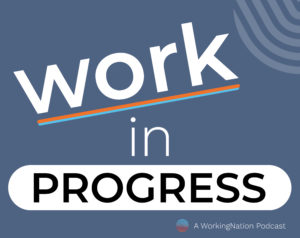
Episode 114: Benjamin Pring, Director, Cognizant Center for the Future of Work
Host: Ramona Schindelheim, Editor-in-Chief, WorkingNation
Producer: Larry Buhl
Executive Producers: Joan Lynch, Melissa Panzer, and Ramona Schindelheim
Music: Composed by Lee Rosevere and licensed under CC by 4.0.
You can check out all the other podcasts at this link: Work in Progress podcasts



